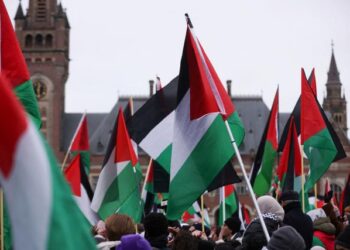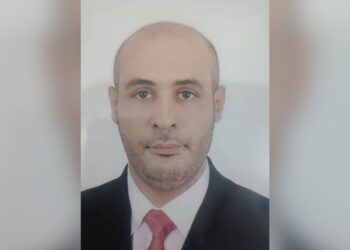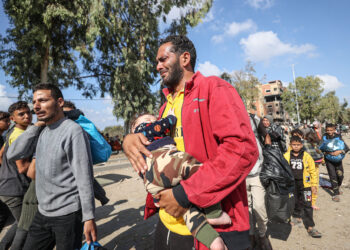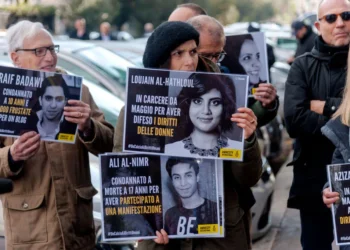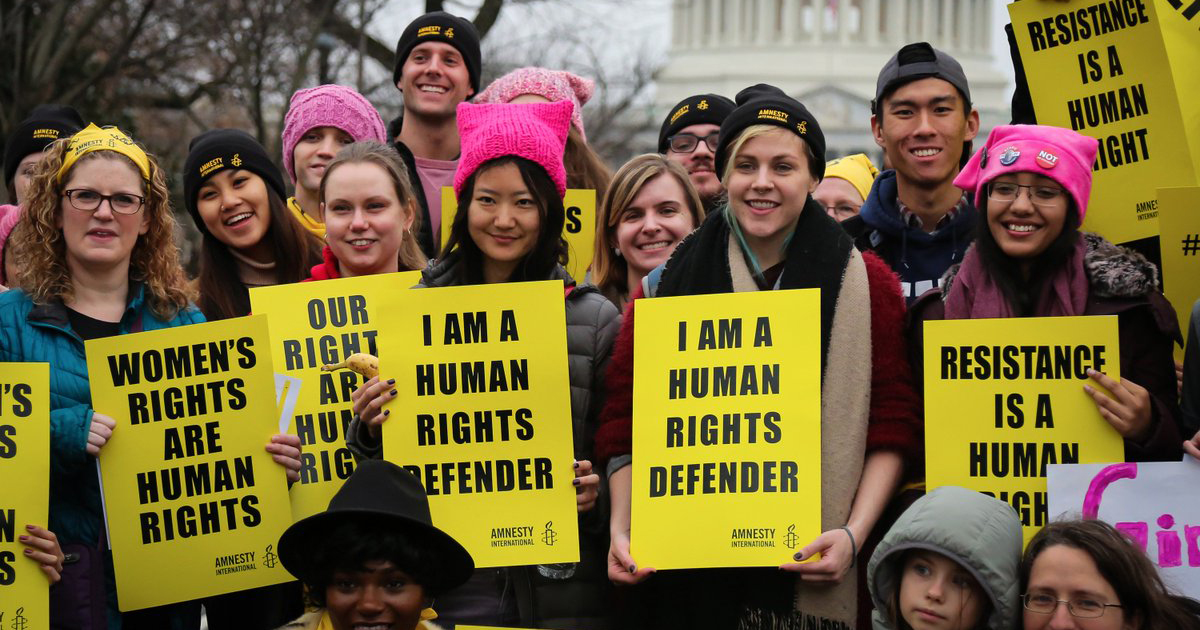Human Lives Human Rights: By granting the veto power to the permanent member states of the Security Council, they were given the privilege to exercise this power when necessary. Maybe in many cases, the use of this power is justified, but in some cases, especially human rights cases, this issue raises many questions and doubts. Some believe that the veto power is a symbol of oppression by which human values and dignities are trampled by just one or two votes. Veto means that might is right. Based on this principle, a nation that has power is considered above and beyond the law. In this regard, Navi Pillay, the UN High Commissioner for Human Rights, has said that the members of this council, instead of paying attention to human suffering and cases of gross violations of global peace and security, with complete shortsightedness, they prioritize geopolitical issues and their narrow national interests. He has said that a more appropriate reaction from this council could save the lives of hundreds of thousands of people. According to him, the current situation in Syria, Afghanistan, Central Africa, Congo, Iraq, Libya, Yemen, Gaza, Somalia and Sudan is a clear evidence of the failure of the international community to prevent or end crises. He has criticized the use of the veto to block international action in preventing or ending crises.
These criticisms are made while today large parts of the world are engulfed in insecurity, war, terrorism, military operations of great powers and local and regional tensions. These conflicts have claimed the lives of hundreds of thousands of people for years. Meanwhile, the United Nations, especially the Security Council of this organization, is responsible for providing global security and maximum protection for human lives and preventing and ending war and insecurity. The use of veto power by senior members of the Security Council and powers with veto power has often caused the blood of thousands of people around the world to be unjustly shed for more profits in the pockets of cartels and multinational trusts; the giant companies that manufacture and sell weapons and fighter jets; and the domineering interests; greed; and imperialism of the world’s rapacious powers.
These issues have also clearly led to the situation where powers that one day launch a military campaign in a distant part of the world under the pretext of violating human rights; another day turn a blind eye to the most brutal killings; bloodshed; and murders and easily ignore them. The conflict of interests of powers such as Britain; China; Russia; France; and America has often caused wars of attrition in the mentioned countries that take away the lives of thousands of innocent people. The cruel veto of punitive Security Council resolutions against regimes that widely violate human rights and deprive thousands of innocent people of their right to life is one of the main causes of bloodshed and violence and widespread violations of human rights.
A clear example of that is the recent war in Gaza, as well as the devastating and painful tragedy in Syria, as well as the inexcusable silence of the Security Council regarding the crimes of ISIS; Taliban; and others in Iraq and Afghanistan. On the other hand, Margaret Skagia, the UN Special Representative for Human Rights, has stated in a press conference at the United Nations: When a government violates international human rights laws, the members of the Security Council issue a resolution about that country, while the permanent members of this council widely violate human rights themselves. She has pointed out that we are witnessing that the Security Council instead of dealing with human rights issues is playing a series of political games. She has criticized the performance of the Security Council.
She has also pointed out that at present time, we are witnessing that the Security Council is engaged in playing a series of political games instead of dealing with human rights issues. Criticizing the performance of the Security Council, especially in recent years, she has said: It is a big concern when we see that politics has pervaded this organization and with political vetoes it has caused human rights violations. A look at the performance of the permanent members of the Security Council and their use of veto power in various issues can confirm the statements of these UN officials.
For example, China and Russia’s veto in the UN Security Council has prevented them from reaching a general agreement at all levels of the United Nations to condemn human rights violations and atrocities in Syria. The point to consider is that using veto power by great powers in cases where the issue is directly related to them; such as Soviet Union’s veto on Afghanistan or US’s veto on Vietnam; it seems natural; but they use the veto power in many other cases and thus the most basic human rights are attacked based on the interests of these countries.
For example: the request of 120 member countries of the United Nations for sanctioning Israel did not work out. On the other hand, the Statute of the International Criminal Court authorizes the Security Council not only to refer a case to the Court, but also to suspend or stop the criminal prosecution of the cases according to the resolutions of the Security Council (taking into account the veto power of the permanent members of the Council). Granting this privilege means that the military forces of these countries under the banner of the United Nations can commit any type of legal violation or numerous crimes without being tried and punished in an international trial and on this basis cause the spread of human rights violations. But if we want to point out the most repeated veto process in the United Nations, the issue of using veto power in issues related to Israel has passed the limit of repetition and frequency and has become a normal practice in the United Nations Security Council.
The veto power and the Palestinian conflict
One of the issues that has received the most vetoes is the Palestinian conflict. So far, the US alone has vetoed more than fifty resolutions against Israel, most of which are related to the Palestinian conflict. In fact, the US as a permanent member of the Security Council has used its veto power 61 times against resolutions in favor of Palestine since the establishment of the United Nations and has hindered the implementation of international decisions related to the Palestinian issue and the end of the Arab-Israeli tension. The United Nations with all its members is helpless against gross violations of human rights in Palestine. None of the UN resolutions against Israel have been implemented so far and most of them have been vetoed by the US. While one of the duties of the Security Council is to recommend the admission of new members, but for Palestine, not only there is no recommendation, but also their inalienable rights are violated by the US veto. Palestinians do not have the right to travel and move freely in their own country and they live in a military camp with hundreds of checkpoints around the Palestinian territories.
Resolutions containing violations of the right to self-determination
One of these resolutions was vetoed in July 1973. This resolution was proposed by Guinea, India, Indonesia, Panama, Peru, Sudan and Yugoslavia and the statements of the participants in this issue, including the foreign ministers of Egypt, Algeria, Chad, Guinea, Nigeria, Saudi Arabia, Sudan and Tanzania were heard and the primary responsibility for maintaining international peace and security was emphasized. It was also emphasized that all members of the United Nations are committed to complying with the resolutions of the Security Council according to the articles of the United Nations Charter and that they are aware that the rights of Palestinians must be protected. In this resolution draft, the most important items presented were as follows:
1- A peaceful and just solution to the Middle East issue can only be based on respect for national sovereignty, territorial integrity, the rights of all countries in that region and the rights and legitimate aspirations of Palestinians. 2- Declares that any change in occupied areas that may hamper a peaceful and final settlement or affect the political or fundamental rights of all inhabitants of these occupied areas should not be recognized. The US vetoed this resolution that demanded Israel’s withdrawal from Arab lands and recognition of the right of the Palestinians. With this US veto, the fundamental right of the Palestinian people to be recognized as a state by the United Nations and the right to self-determination was disturbed. Because according to the political situation, to form an independent state, although there are challenges regarding the effective exercise of the political power of the authorities, there is the decisiveness and originality of the decision-making power and the real and unified dominion in all the liberated territories. But this does not mean ignoring this fundamental right of the Palestinian people.
In 1976, three draft resolutions were vetoed by America, two of which contained one of the most important rights of the Palestinians. These two resolutions are:
- The veto of the draft resolution proposed by Pakistan; Panama; Tanzania; Romania regarding recognition of the right of the Palestinian people and their right to self-determination and establishment of an independent state.
- The veto of the draft resolution proposed by Guyana; Pakistan; Panama; and Tanzania regarding recognition of the right of Palestinians to self-determination and return of refugees to their country.


